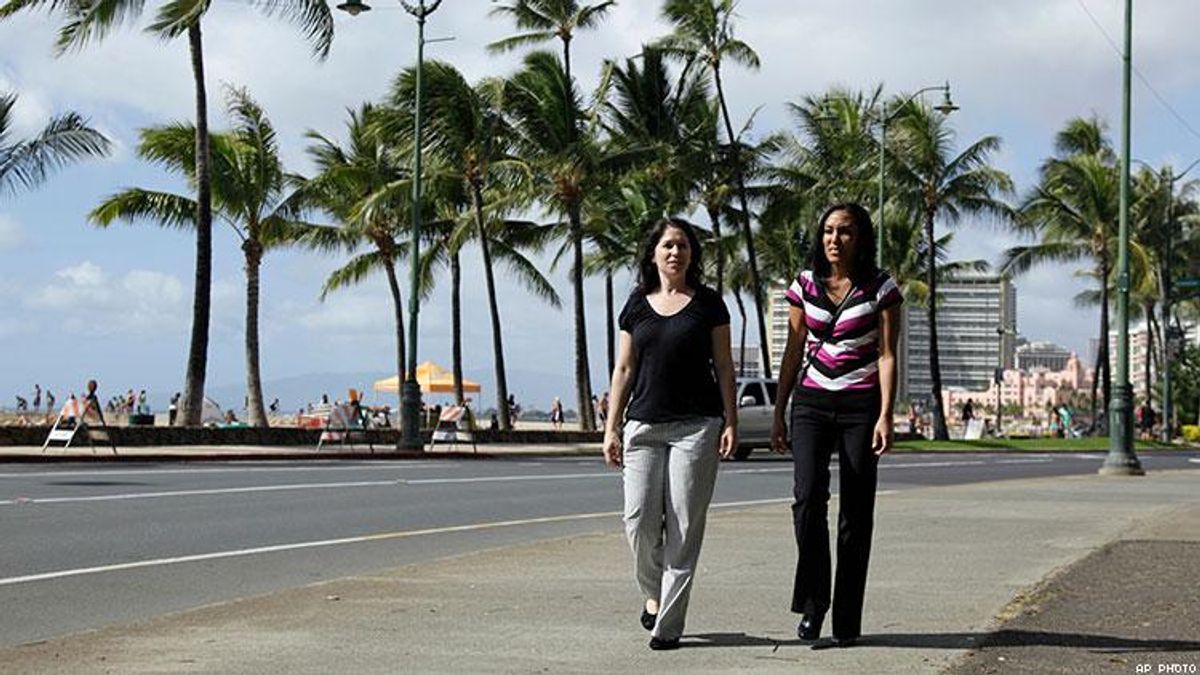A victory for equality was won in Hawaii when the state supreme court refused to review an appeal on a ruling against a bed and breakfast owner who violated the state's anti-discrimination law.
In 2007, Diane Cervelli and Taeko Bufford were refused service at an Aloha Bed & Breakfast in Honolulu after the owner, Phyllis Young, asked if the women were lesbians.
Young cited her religious beliefs as the basis for her argument for discriminating against the couple, telling Cervelli that gay people made her "very uncomfortable."
After the incident, the couple filed a complaint with the Hawaii Civil Rights Commission (HCRC), whose investigation found that Young called homosexuality "detestable" and believed that Cervelli and Bufford sharing a bed would have "defiled the land." Young believed she was in the right because she ran the business from her home.
"When you run a business in your house, it's a business and you can't discriminate," Robin Wurtzel of the HCRC said told LGBTQ Nation.
In 2011, the couple filed a lawsuit against the bed & breakfast and were represented by nonprofit LGBTQ rights organization Lambda Legal.
"Religious freedom is a very important American value, but it doesn't mean a right to violate the law," Jennifer Pizer of Lambda Legal told Hawaii News Now. "It's really been about a civil rights law that needs to protect everyone, it needs to be real and it needs to be followed. When people come for a vacation or other reasons to visit in Hawaii, everyone should be treated equally."
The Intermediate Court of Appeals affirmed the lower court ruling in February.
"In letting the existing decision stand, Hawaii today joined a long line of states across the country that understand how pernicious and damaging a religious license to discriminate would be," Lambda Legal Senior Attorney Peter Renn said in a statement.
"That is the just and proper understanding of the U.S. Constitution," Renn added. "Religious freedom is protected, but it cannot be used as a justification for discrimination. If you operate a business, you are open to all."
In 2013, a Hawaii First Circuit Court judge ruled in favor of the couple, stating that the bed and breakfast owner's decision was in violation of the state's public accommodation law. The law states that businesses who provide housing to passing guests may not discriminate based on sexual orientation, sex -- which includes gender identity -- race, color, ancestry, religion, or disability.
"What I want people to take away from this is a sense of hopefulness that the court does the right thing, that sometimes justice prevails," Wurtzel said.


















































































